Shows

DataforDisasterRiskReductionFuture Frontiers: The Synergistic Road Ahead for Urban WellbeingFuture Frontiers: The Synergistic Road Ahead for Urban Wellbeing by CAG and CODATA and Tonkin & Taylor
2024-02-1520 min
DataforDisasterRiskReductionInnovations in Geo AI: Case Studies and Success StoriesInnovations in Geo AI: Case Studies and Success Stories by CAG and CODATA and Tonkin & Taylor
2024-02-0916 min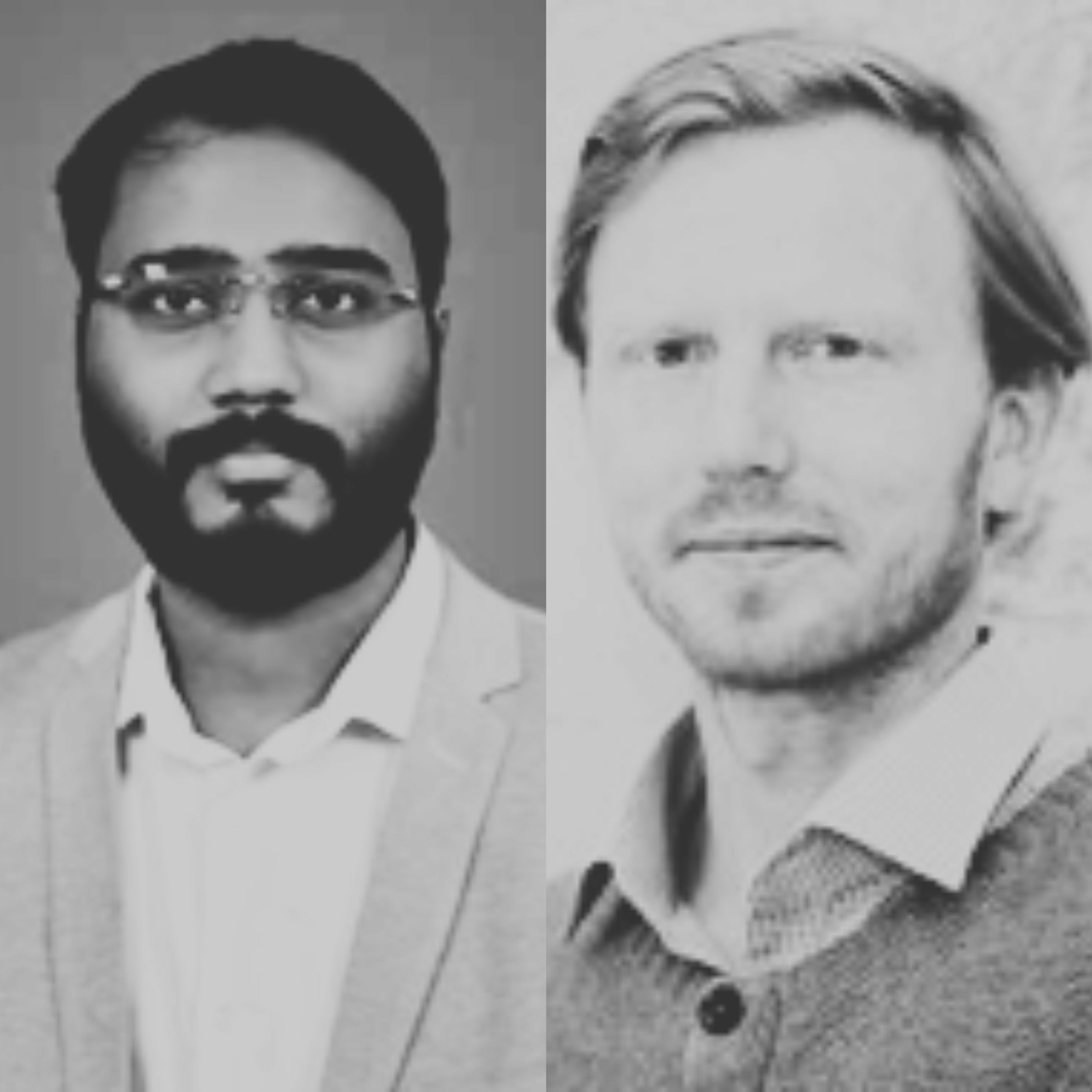
DataforDisasterRiskReductionEquity and Accessibility: Democratizing Satellite InsightsEquity and Accessibility: Democratizing Satellite Insights by CAG and CODATA and Tonkin & Taylor
2024-02-0221 min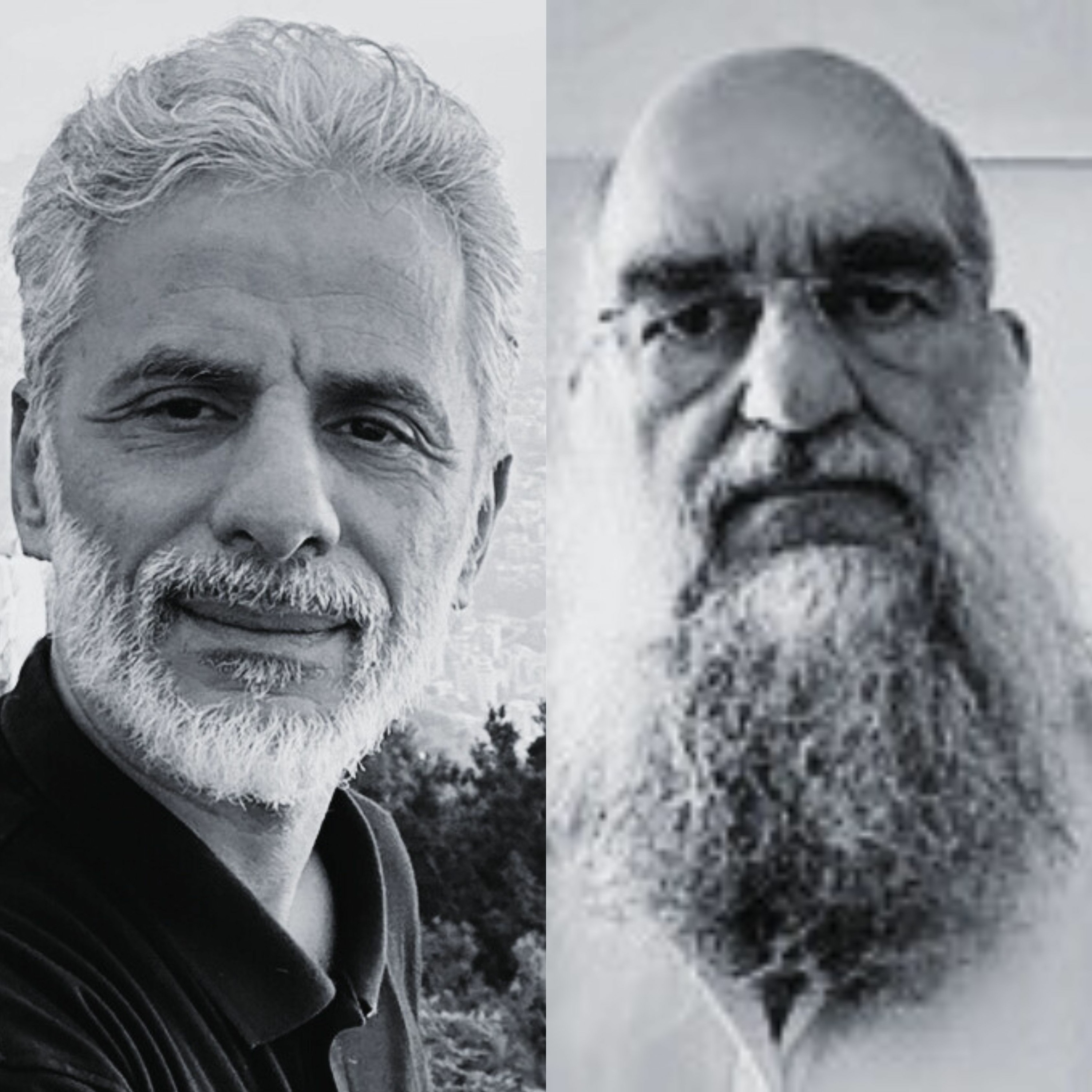
DataforDisasterRiskReductionSustainable Development Goals: Satellite Data as a Catalyst for ChangeSustainable Development Goals: Satellite Data as a Catalyst for Change by CAG and CODATA and Tonkin & Taylor
2024-01-1920 min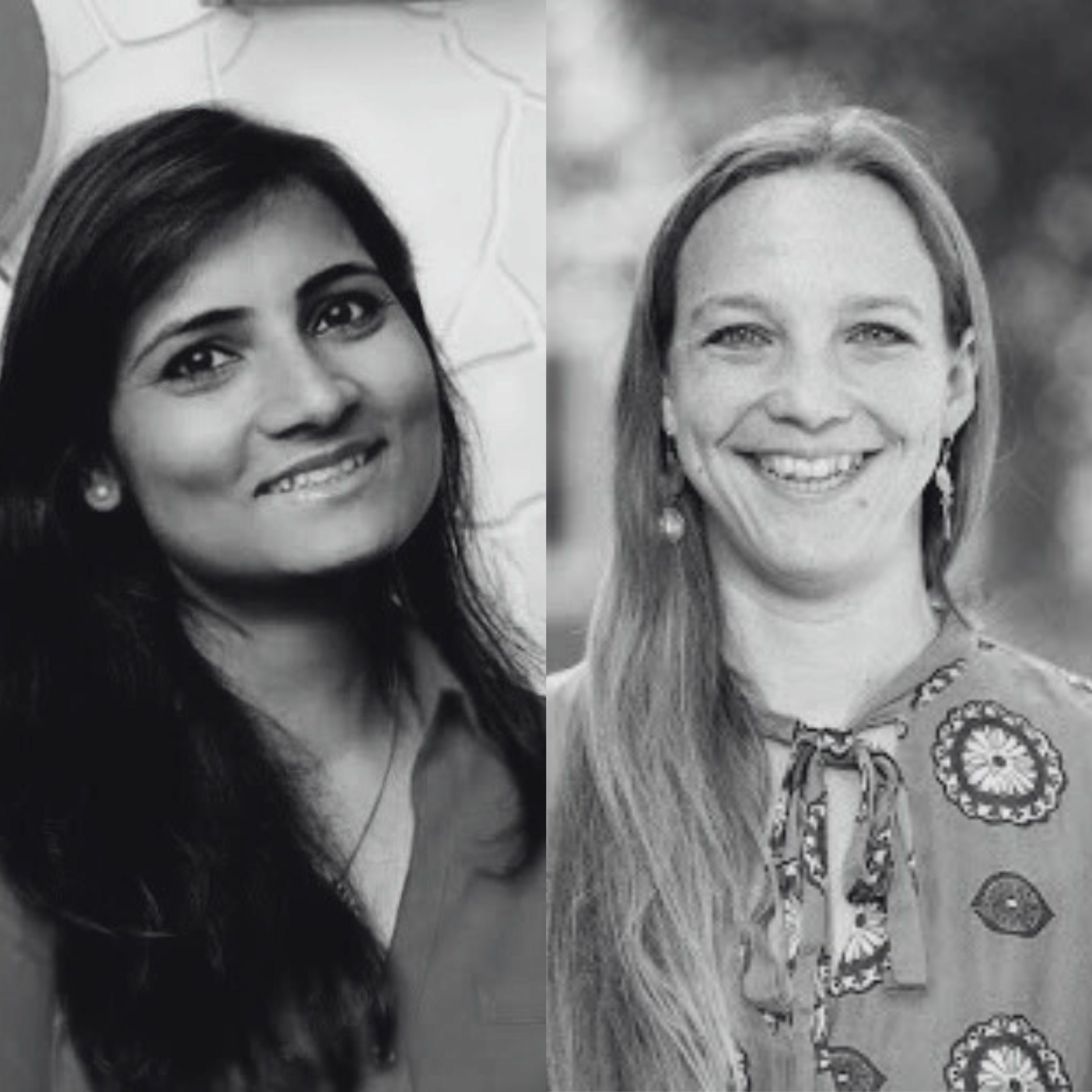
DataforDisasterRiskReductionSatellite Data: From Pixels to Actionable InsightsSatellite Data: From Pixels to Actionable Insights by CAG and CODATA and Tonkin & Taylor
2024-01-0422 min
DataforDisasterRiskReductionRevealing Earth’s Beauty from SpaceRevealing Earth’s Beauty from Space by CAG and CODATA and Tonkin & Taylor
2023-12-2221 min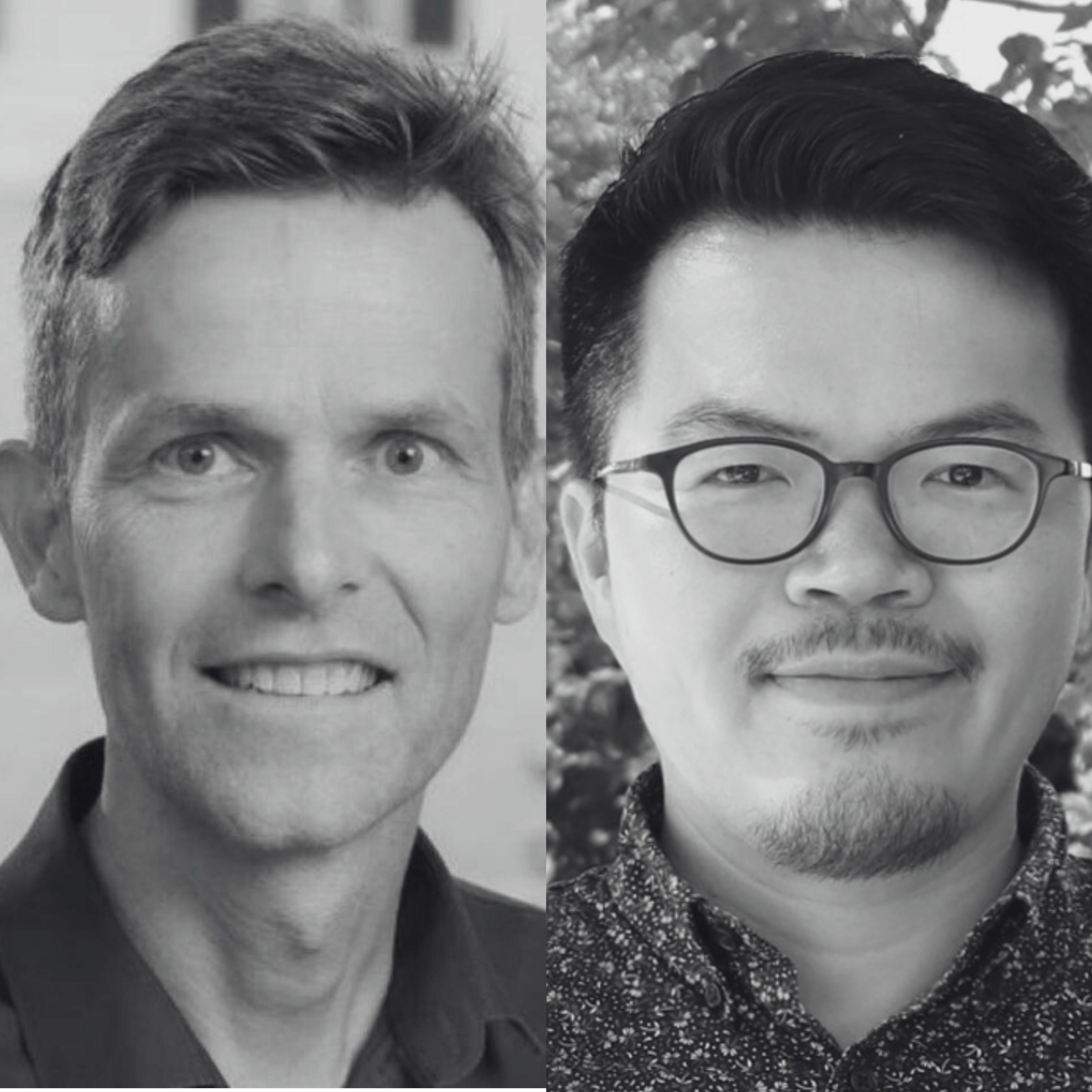
DataforDisasterRiskReductionOpen Data Revolution: Empowering Geospatial InnovationOpen Data Revolution: Empowering Geospatial Innovation by CAG and CODATA and Tonkin & Taylor
2023-12-0621 min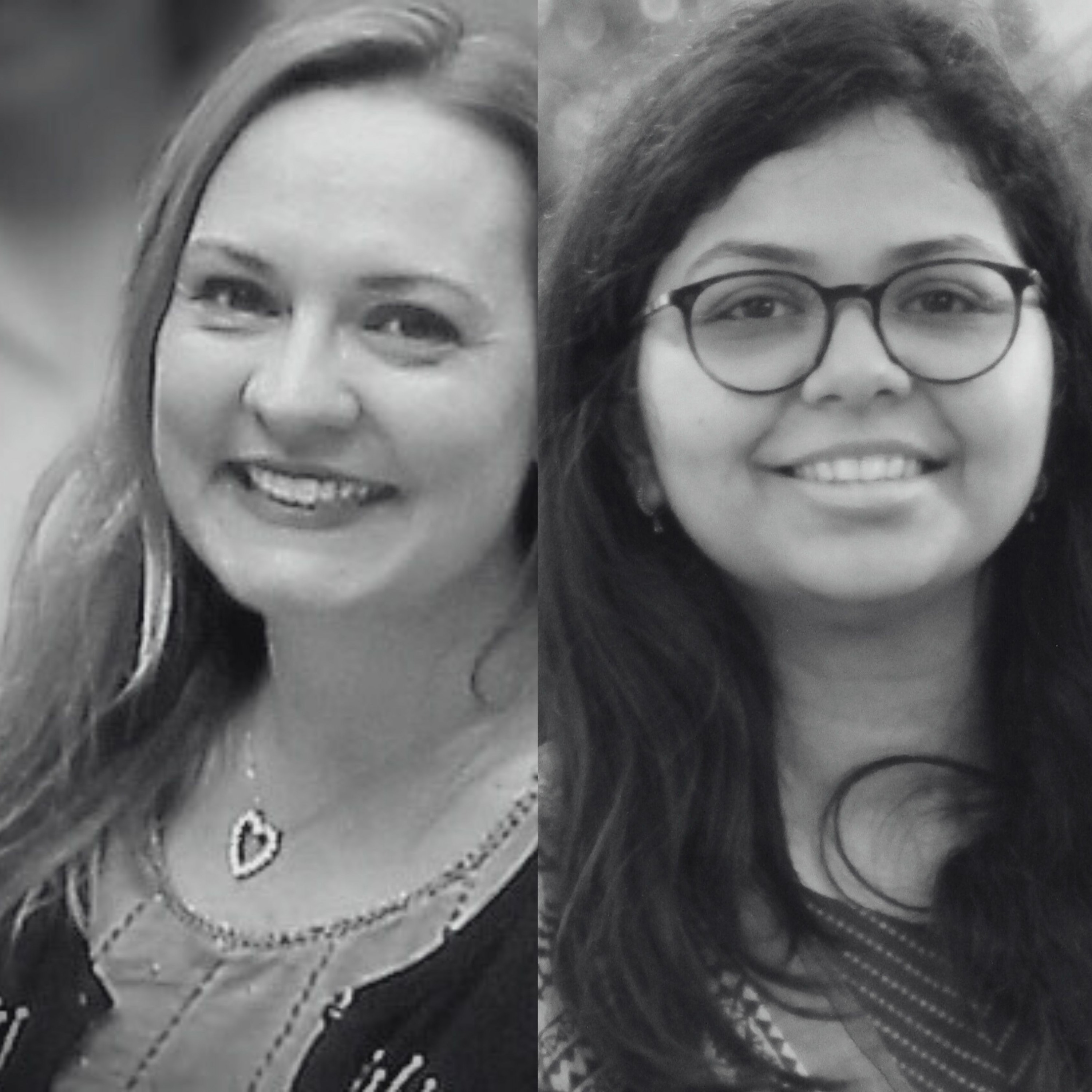
DataforDisasterRiskReductionIntroduction to Open Geo AI: Navigating Satellite Data HorizonsIn this introduction episode to the podcast series on Open Geo AI, Shaily Gandhi in conversation with Christine Kirkpatrick, reflects on how satellite data which is openly accessible, can be harnessed through advanced AI techniques to address pressing challenges across diverse sectors.
Dr. Shaily Gandhi Deputy Center Head, Center for Applied Geomatics, CRDF. She is a GIS expert with more than 11 years of experience. She is a PhD from CEPT University in Geospatial Technology and has expertise in bridging the gap between GIS & governance.
Shaily has been recently awarded the Geospatial World 50 Rising Star for the year 2023 by Geospatial World...
2023-10-2508 min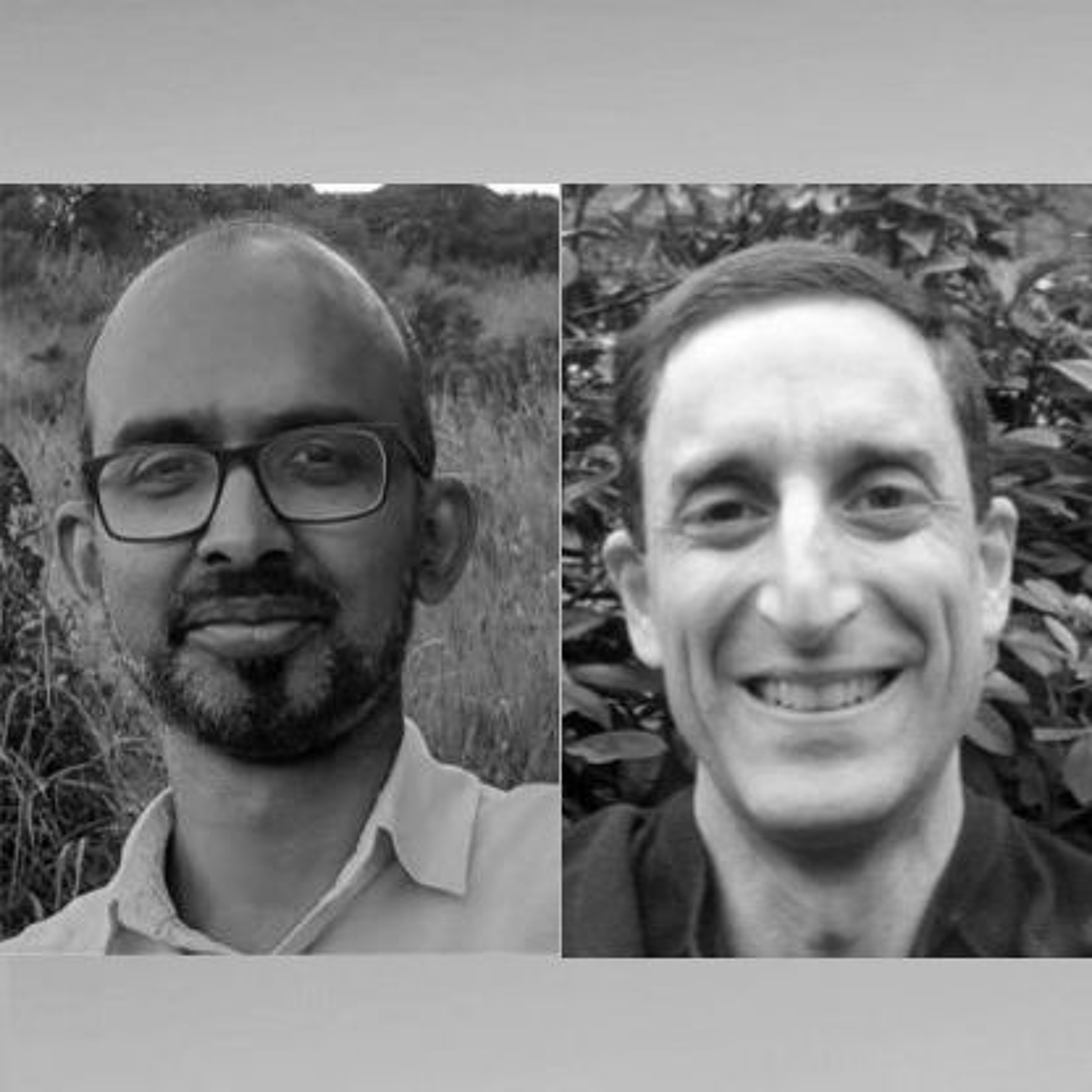
DataforDisasterRiskReductionData and trends for climate change risksThis episode talks about the importance of data for climate change risk assessment and preparing for adversity caused by Climate Change; risk levels can be assessed using vulnerability, exposure, and hazard data. Further, into the episode, the importance of quantitative and qualitative data is also discussed to ensure a holistic risk assessment. Dr. Bapon is Chair of the CODATA Task Group on FAIR-DRR. Ilan Kelman is a Professor of Disasters and Health at University College London, England, and a Professor II at the University of Agder, Kristiansand, Norway. His overall research interest links disasters and health, integrating climate change into...
2022-11-2214 min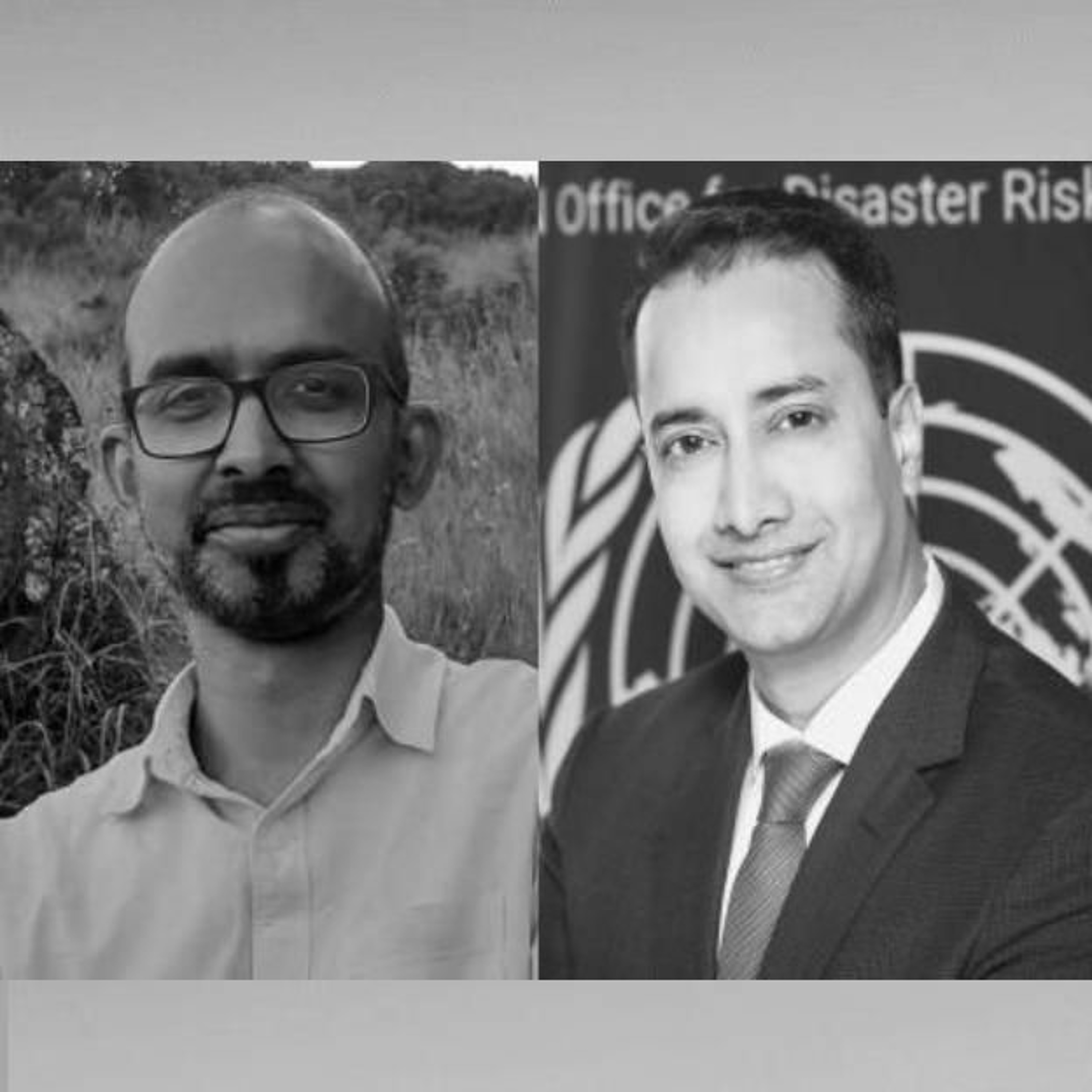
DataforDisasterRiskReductionData for Loss and Damage AssessmentThis episode talks about the trends of disaster activities and how the Sendai Framework is being adapted globally to monitor disaster loss and understand the risk assessment aspects of the disasters. They also discussed integrating the exposure, risk, and vulnerability data to understand the damage assessment scenarios better. Dr. Bapon is Chair of the CODATA Task Group on FAIR-DRR. Dr. Animesh works for the United Nations Office for Disaster Risk Reduction as the Bonn's head of office. The UNDRR Bonn Office serves as the organization’s global facility for climate action and comprehensive risk management, disaster data, and monitoring of th...
2022-11-1416 min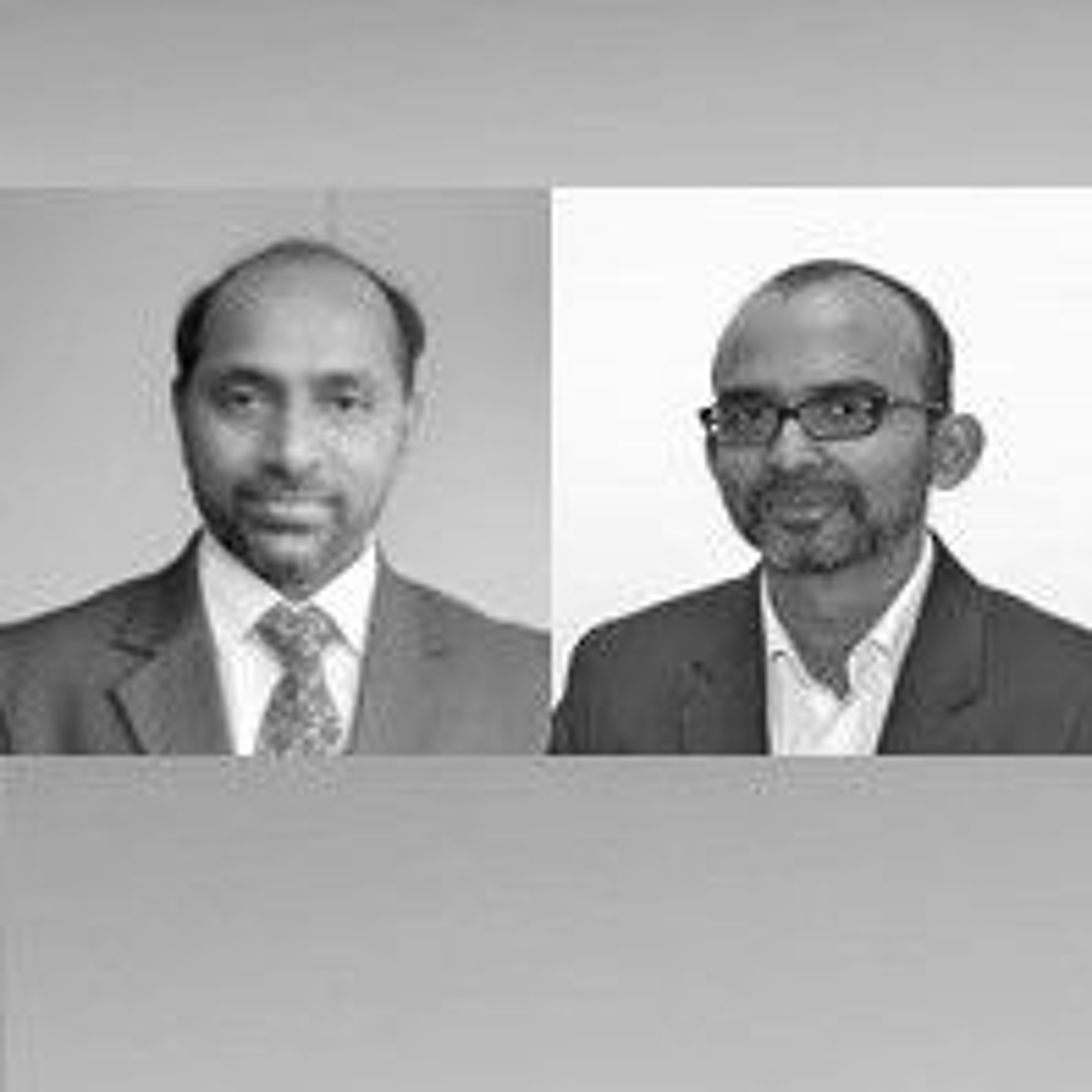
DataforDisasterRiskReductionRole of social media, geospatial and earth observation communities to expedite emergency reliefThis episode talks about the role of Social Media Data in expediting emergency relief and the challenges while ensuring effective utilization of the earth observation data and how policy frameworks are one of the driving forces for the same. Dr. Bapon is Chair of the CODATA Task Group on FAIR-DRR. Dr. Shirish Ravan works for the United Nations Office for Outer Space Affairs in Vienna, Austria, the UN Office dedicated to global space governance and promoting peaceful uses of outer space. He implements international programs facilitating space-based technologies in achieving SDGs, especially disaster and climate resilience.
2022-11-0914 min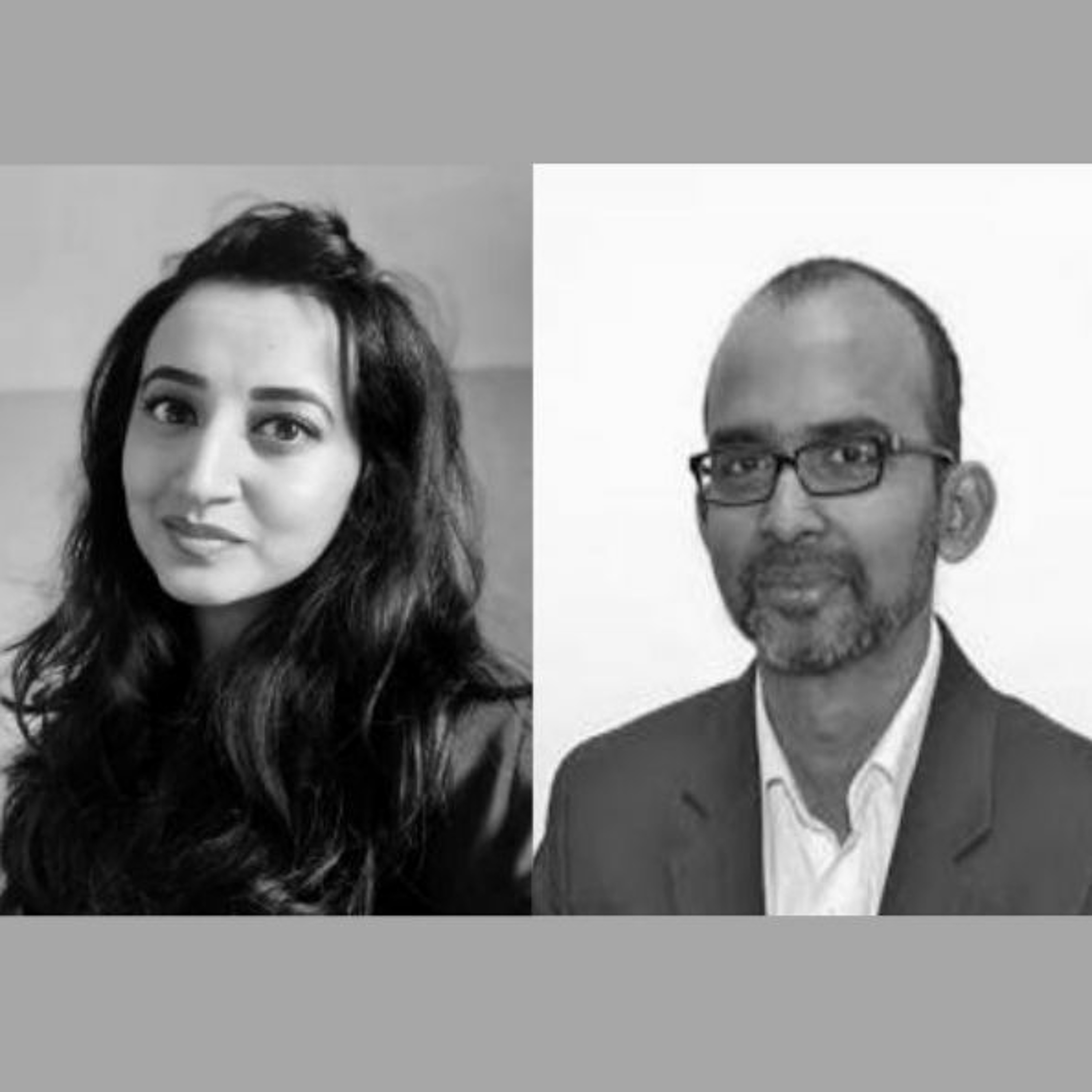
DataforDisasterRiskReductionData for disaster related statisticsLearn about data-driven response and recovery, data coordination, historical data management, required resources, and infrastructure. Insights into policies to be adopted to use technology for better disaster prediction.
Kanza is a Consultant in Global Public Health for the Global Disaster Risk Reduction and Global Health Security functions at the newly formed UK Health Security Agency. She has extensive experience in epidemiology and statistics, having graduated from the UK Field Epidemiology Training Programme (UK-FETP) in 2020.
Dr. Bapon is Chair for CODATA Task group on FAIR-DRR, a trained hydrologist with 17 years of working experience in water engineering, climate, and disaster risk management...
2022-11-0320 min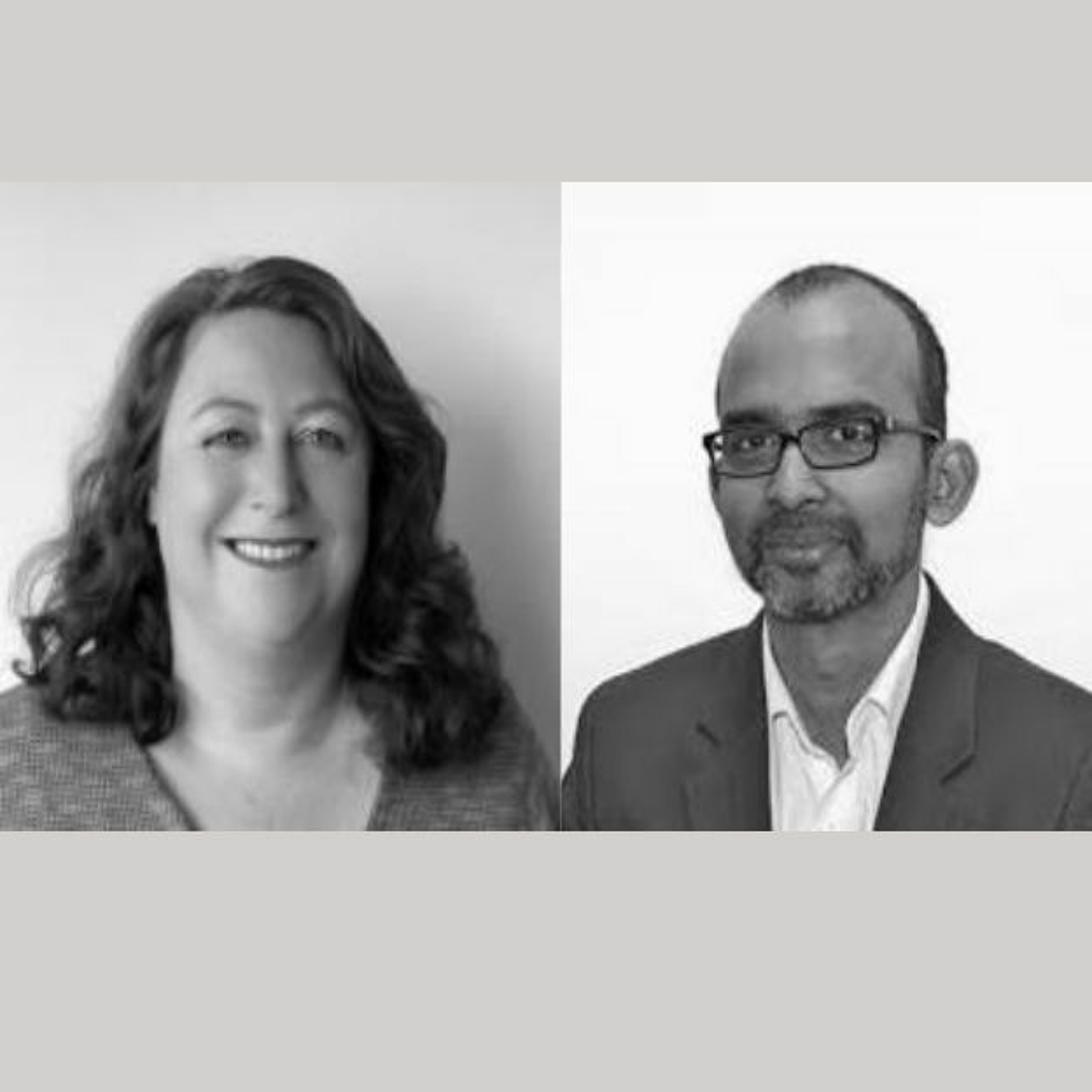
DataforDisasterRiskReductionData to enhance Early warning systems and early actionsThis episode talks about the importance of data in hazard modeling and the challenges faced while setting up an early warning system. Dr. Bapon Fakhruddin, Technical Director, Tonkin, and Taylor from New Zealand, co-chair of Integrated Research on Disaster Risk (IRDR), and Jill Bolland, Principal Natural Hazard and Climate Risk Consultant, Tonkin, and Taylor, share their views on the issues related to data quality and inequality in the data distribution, and how access to open data still is a long way to go while dealing with disaster risk assessment on a global scale.
2022-10-2017 min
DataforDisasterRiskReductionCoordination and Data Management for response to recoveryIn 2021, Emergency Event Database, the global database on disasters, recorded 432 events related to natural hazards worldwide. The first episode of the podcast series on Data for Disaster Risk Reduction explores data-driven response and recovery, data coordination, management, and required resources and infrastructure. Insights into policies to be adopted to use technology for better disaster prediction.
The episode has Yan Wang, Data Stewardship Coordinator at Delft University of Technology, Netherlands and Bapon Fakhruddin, Technical Director, Tonkin and Taylor, New Zealand.
2022-07-0119 min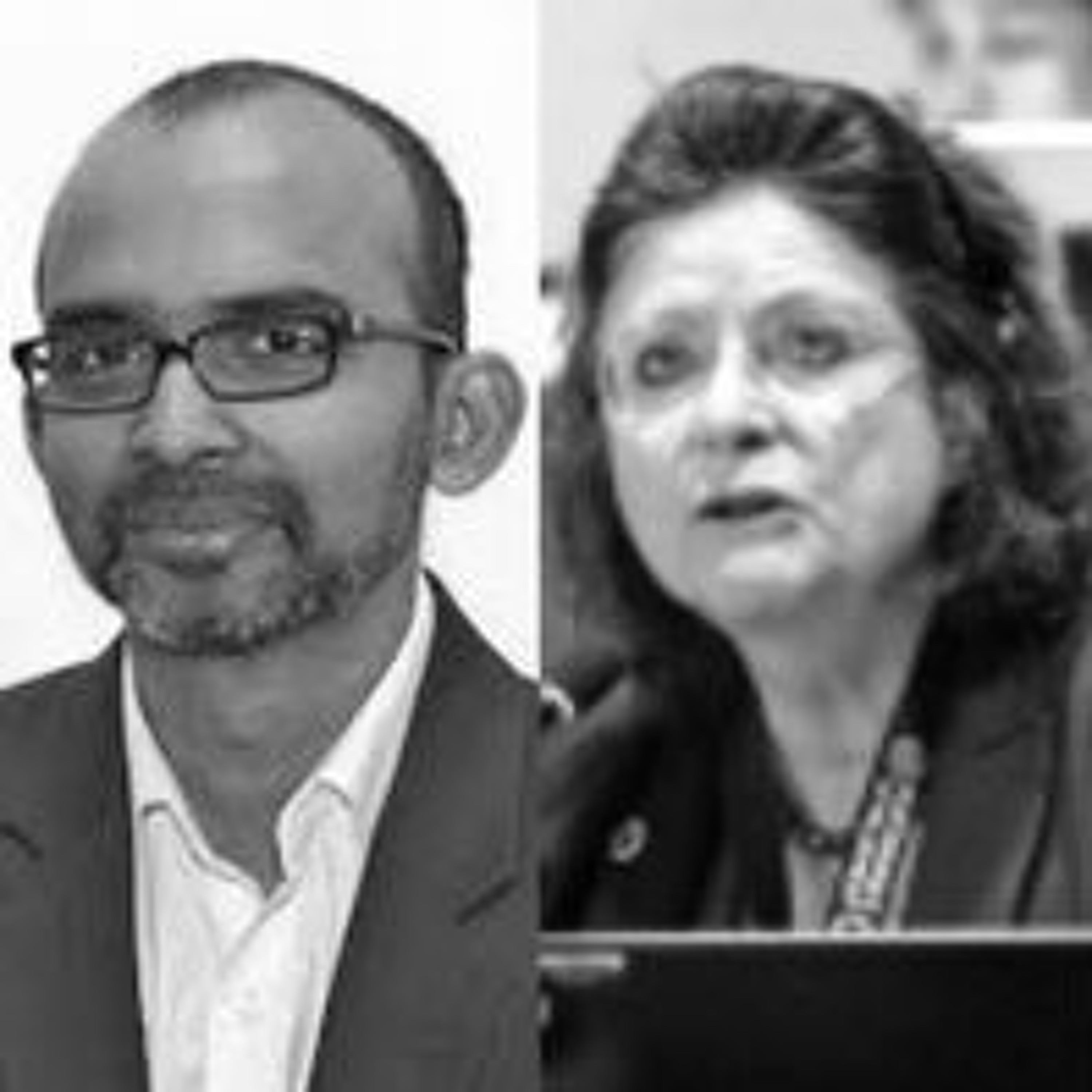
DataforDisasterRiskReductionData Driven Dynamics for ResilienceThe Center for Applied Geomatics (CAG), CRDF is launching another series on Data for Disaster Risk Reduction that will go in-depth into the systematic use of data for handling disasters and making decisions for post-disaster recovery. It will have 6 episodes where eminent thinkers and practitioners will engage in meaningful discussions and offer their knowledge, case studies, and solutions to mitigate disaster risks. The integral part of the series is to understand how data plays a critical role at stages of disaster management cycle - Preparedness, Response, and Recovery. CAG, CODATA and Tonkin Taylor are jointly hosting this series. The series...
2022-05-2515 min
DataforDisasterRiskReductionRole of Community Data in Making Cities HealthyIn the last episode of Data-Knowledge-Action for Urban Systems, we have Arup Dasgupta, Managing Editor, Geospatial World. The podcast takes a deep dive into the impact of data for making cities healthy and talks about urban health, climate change, and action for policymaking. The podcast series by the Center for Applied Geomatics (CAG), CRDF focused on exploring the intersections of data and its importance for urban wellbeing.
Arup Dasgupta is the Managing Editor of Geospatial World magazine. He has more than 50 years of experience in satellite communications, remote sensing and Geospatial systems and applications. He has worked in the Space...
2021-12-0321 min
DataforDisasterRiskReductionImpact of Environment on Human HealthLearn about the quality of life, data for building healthy cities, green spaces, and the impact of climate change on cities' health.
Suraj Bhattarai is a public health physician and urban health researcher and a research fellow at the Global Institute for Interdisciplinary Studies, a scientific committee member of the International Science Council’s Urban Health and Wellbeing Programme, and a regional coordinator of the ISUH’s ‘Urban health mapping and analysis project’.
Keiko Nakamura, MD PhD, is the Director of WHO Collaborating Centre for Healthy Cities and Urban Policy Research and Professor of the Department of Global Health Entrepreneurship, Tokyo Me...
2021-10-2219 min
DataforDisasterRiskReductionFAIR Data sharing practice for making integrated systems work dynamically for citiesInsights into the kind of data we use and its value, the role of data in planning cities, and how to mitigate the risk of misuse of data.
Andrew Young is the Knowledge Director at The GovLab, where he leads research efforts focusing on the impact of technology on public institutions. Among the grant-funded projects he has directed are global assessment of the impact of open government data; establishing principles and practices to inform responsible handling of children’s data in humanitarian and development contexts; a methodology for leveraging corporate data to benefit the public good; and crafting the experimental de...
2021-10-0818 min
DataforDisasterRiskReductionConverting Mobility Data to Knowledge for Making Cities HealthyJoin the conversation on mobility data, pollution, personal data privacy, cost of traffic on health, data ownership, and the cost of changes in traffic conditions.
Ruth is currently a Director at Hocone limited where she collaborates with Australian researchers on the application of ethical and privacy-preserving frameworks in data analytics and AI. She was previously Director of R&D and Data Integrity at Australian Education Technology company Practera where she worked with universities and research organisations to innovate new ways of delivering high-quality work-integrated learning and lifelong learning skills development at scale. At Practera, she established a three-year government-funded multi-disciplinary...
2021-09-2819 min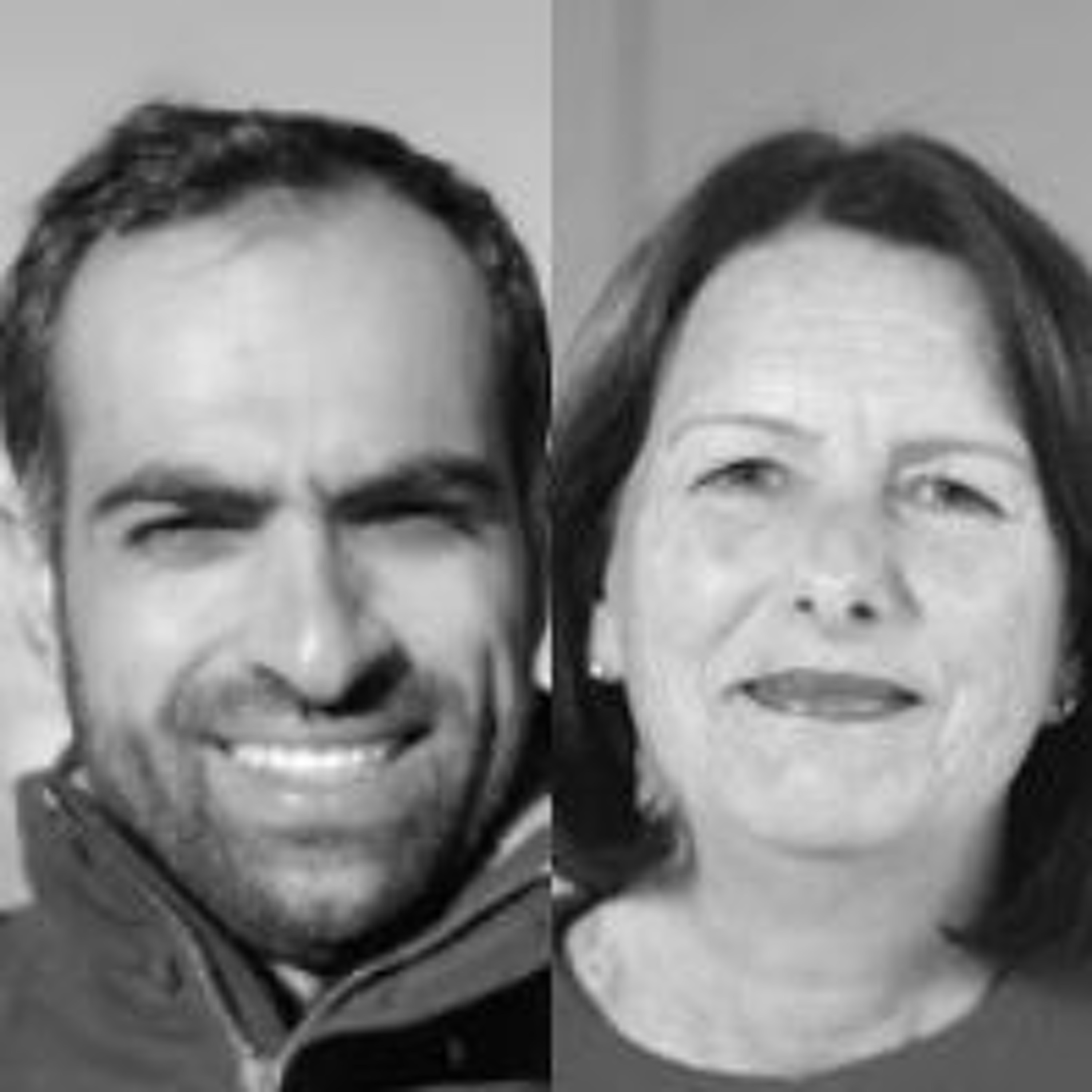
DataforDisasterRiskReductionData for Policy-makers to Improve Decision Making in Cities WellbeingIn the fourth episode, Dr. Abdalhadi Alijla, social and political science advocate speaks with Rachel Cooper OBE, Distinguished Professor of Design Management and Policy, Lancaster University about important factors for wellbeing of cities. They also discuss the quality of data, GIS data, and the role of data-knowledge-action for urban systems in policy-making.
Abdalhadi Alijla is a social and political scientist and science advocate. He is the recipient of the 2021 International Political Science Association Global South Award. Alijla is the Co-Leader of Global Migration and Human Rights at Global Young Academy. He is a co-founder of Palestine Young Academy in 2020. He...
2021-09-1420 min
DataforDisasterRiskReductionTrust is the Heart for Urban WellbeingIn Episode 3 of the podcast series, Dr. Theresa Dirndorfer Anderson speaks with Ana Ortigoza about data life cycle, complex interconnections in health, and methods to be adopted to build trust.
Dr. Theresa Dirndorfer Anderson is a data and information ethicist passionate about future digital and data infrastructure. She is Principal/Founder of Connecting Stones Consulting, Sydney Australia.
Her award-winning work as an educator and a researcher engages with the ever-evolving relationship between people and emerging technologies. As inaugural director of the Master of Data Science & Innovation program at the University of Technology, Sydney, Dr. Anderson’s research guided the development of...
2021-08-3122 min
DataforDisasterRiskReductionIntegrating Health into Urban PlanningIn the second episode of the series Pamela Carbajal, Urban health and regional planner (Planning, Finance and Economy Section). Global Solutions division talks about integrating health in urban planning. The episode also introduces a Sourcebook that has elaborated the concept of integrating health in urban and territorial planning. Pamela talks about the learnings while developing the sourcebook and the impact of Data-Knowledge-Action for Urban Systems with respect to health and urban planners.
Pamela is an Architect from the University of Technology of Monterrey, Mexico. Since January 2018, she works at UN-Habitat, particularly on Integrating health in Urban and Territorial Planning (UTP...
2021-08-1715 min
DataforDisasterRiskReductionHow are DAKAS used in citiesIn the first episode of the series, Dr. Simon Hodson speaks with Dr. Franz Gatzweiler about how are Data-Knowledge-Action (DAKAS) used in cities. Data-Knowledge-Action systems make use of scientific and quantitative data and help in creating intelligent urban systems.
Dr. Simon Hodson is the Executive Director of CODATA. Dr. Hodson is an expert on data policy issues and research data management. He has contributed to influential reports on Current Best Practice for Research Data Management Policies and the Science International Accord on Open Data in a Big Data World. Most recently he chaired the European Commission’s Expert Group on FA...
2021-07-3018 min
DataforDisasterRiskReductionIntroduction episode: What are Data-Knowledge-Action Systems (DAKAS)In the introduction episode of the podcast series, Dr. Shaily Gandhi speaks with Dr. Simon Hodson and Dr. Franz Gatzweiler. Together, they discuss Data-Knowledge-Action systems and take a deep dive into the need for such systems for urban sectors.
Dr. Shaily Gandhi is Manager Informatics at CRDF. She is an alumnus of CODATA/RDA Summer school and one of the initiated Leads for the CODATA Connect Working group and a co-opted member of the CODATA Executive Committee. Dr. Gandhi has completed her PhD degree from CEPT University in 2018. She is also a faculty at CEPT University. Dr. Gandhi has been...
2021-07-3016 min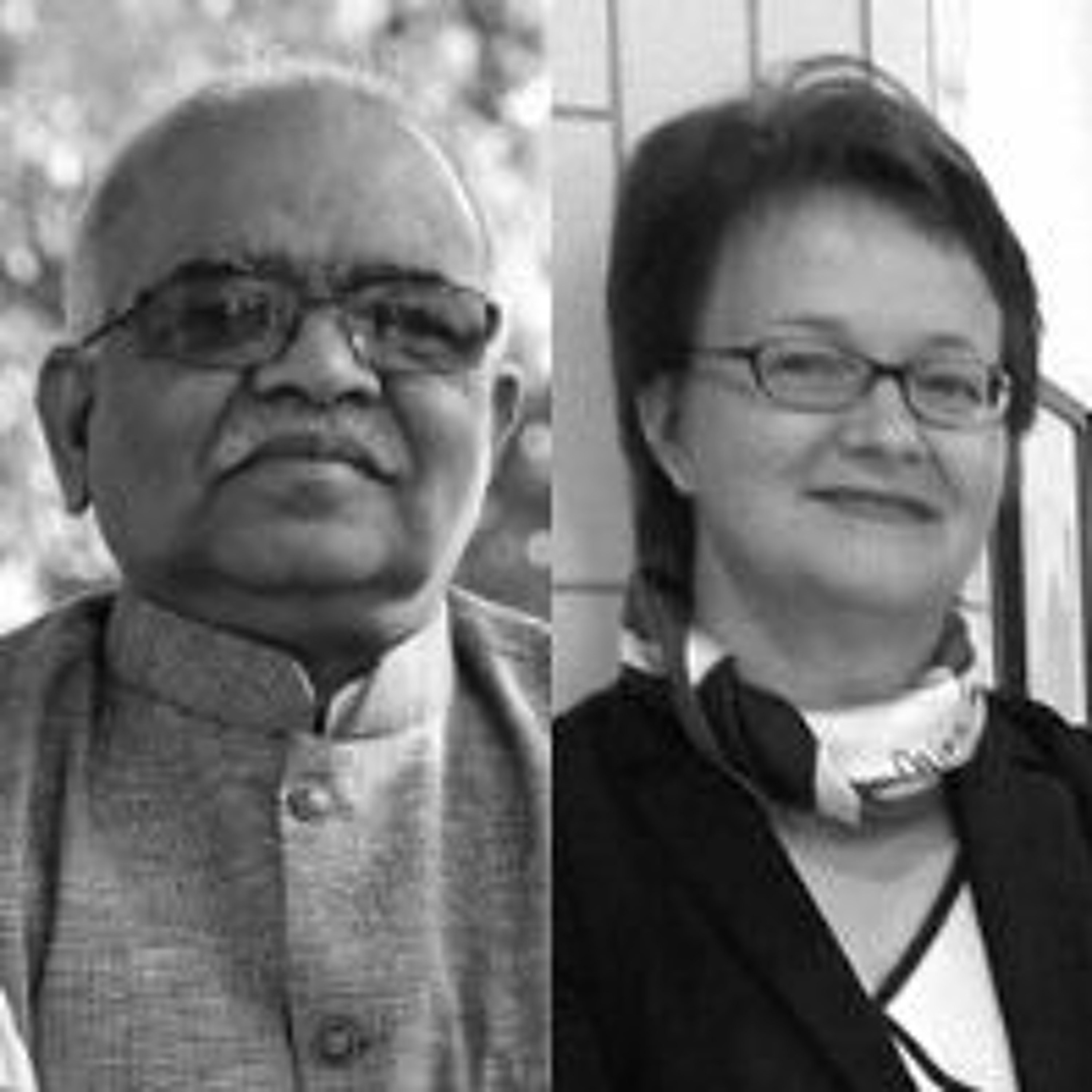
DataforDisasterRiskReductionData Analytics Supporting Cities Mobility and ResilienceIn the final episode Prof. Shivanand Swamy, Director Emeritus, Center of Excellence in Urban Transport, CRDF is in conversation with Waltraut Ritter, independent researcher and founder of Knowledge Dialogues. They talk about data analytics supporting cities mobility and resilience, human intervention on transportation, BRTS issues in integration, and sustainable development goal for mobility. The episode also focuses on how data-driven models are used in transportation monitoring and data analytics for mobility to make cities resilient.
Prof. Shivanand Swamy is an economist and urban and regional planner with deep experience in transport systems, integrated land-use transport planning and development management. He...
2021-05-1520 min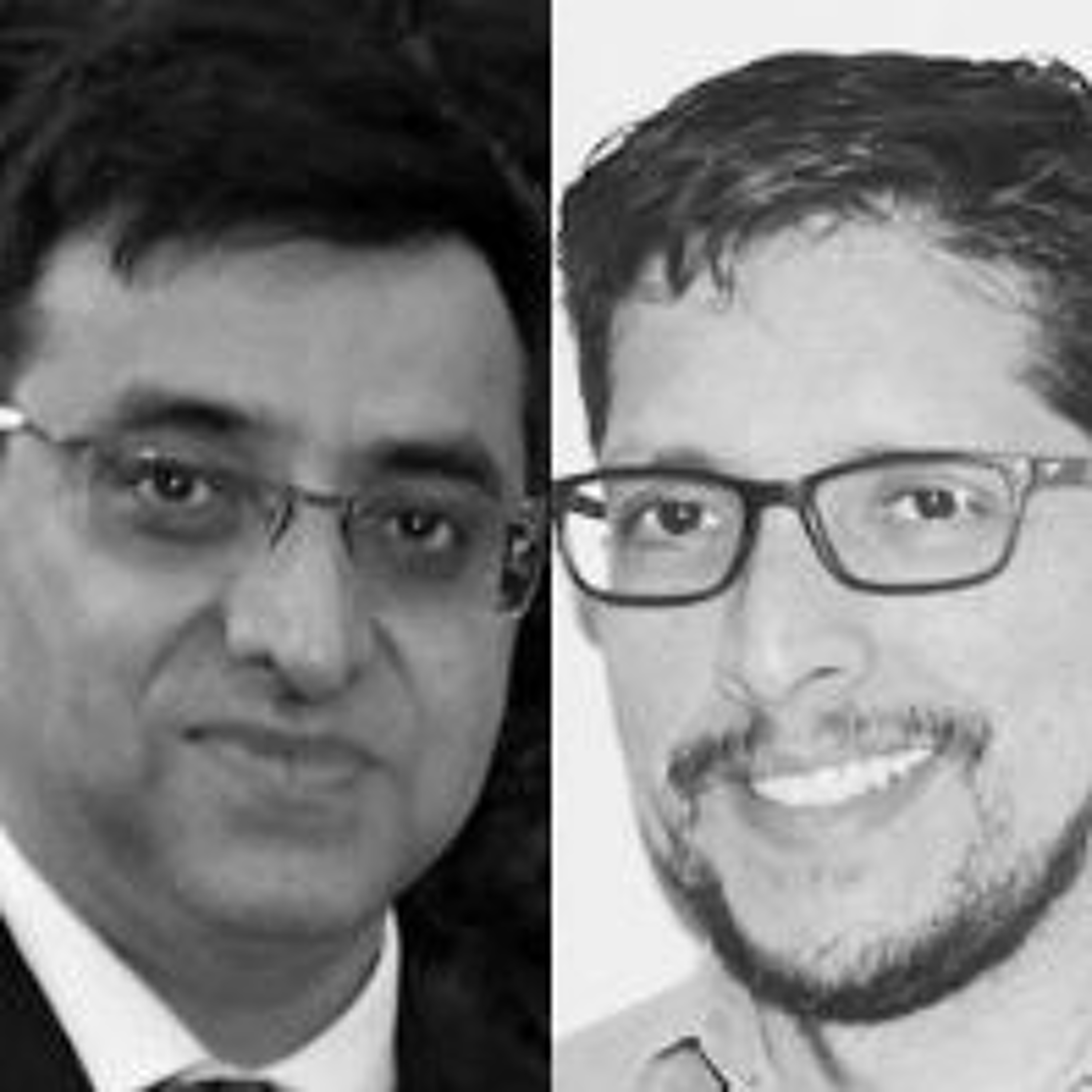
DataforDisasterRiskReductionImportance of Open Data and Data Sharing Along with its Implication for Urban StudiesIn the upcoming episode Vikas Kanungo, Senior Digital Development Consultant, The World Bank is in conversation with Luis E. Bermudez, CEO, GeoSolutions. They talk about problems accessing urban data, National Data Sharing Policy, data trends, use of data integration and sharing in the US, ISO trends and open-data standards and policy.
Vikas Kanungo is a Smart City and m-Governance expert, trainer and advisor with more than 25 years of experience in Digital Platforms and ICT solutions strategy. During his 25 years of career in the ICT industry, he has worked at key consulting and advisory positions with the Government of India, The Wo...
2021-03-1220 min
DataforDisasterRiskReductionContribution of Technology in making cities resilientIn this episode of Contribution of Technology in Making Cities Resilient ,Vishnu Chandra talks to Ton De Vries.
The two speakers discuss Geo-Spatial technologies, a framework for data collection and preservation, use of data sources and data management plans along with open data initiatives for such systems. They also talk about expansion of geo-spatial technology to big data technologies and the role of governments and international organisations.
Vishnu Chandra is the Deputy Director General & Head of Group, National Informatics Center (NIC) Divisions (Geo-Spatial Technology & Services, MoHUA, MoEF&CC, Power, MoLE, MNRE and Coal).
Ton De Vries is Senior Director, Business Dev...
2021-02-2626 min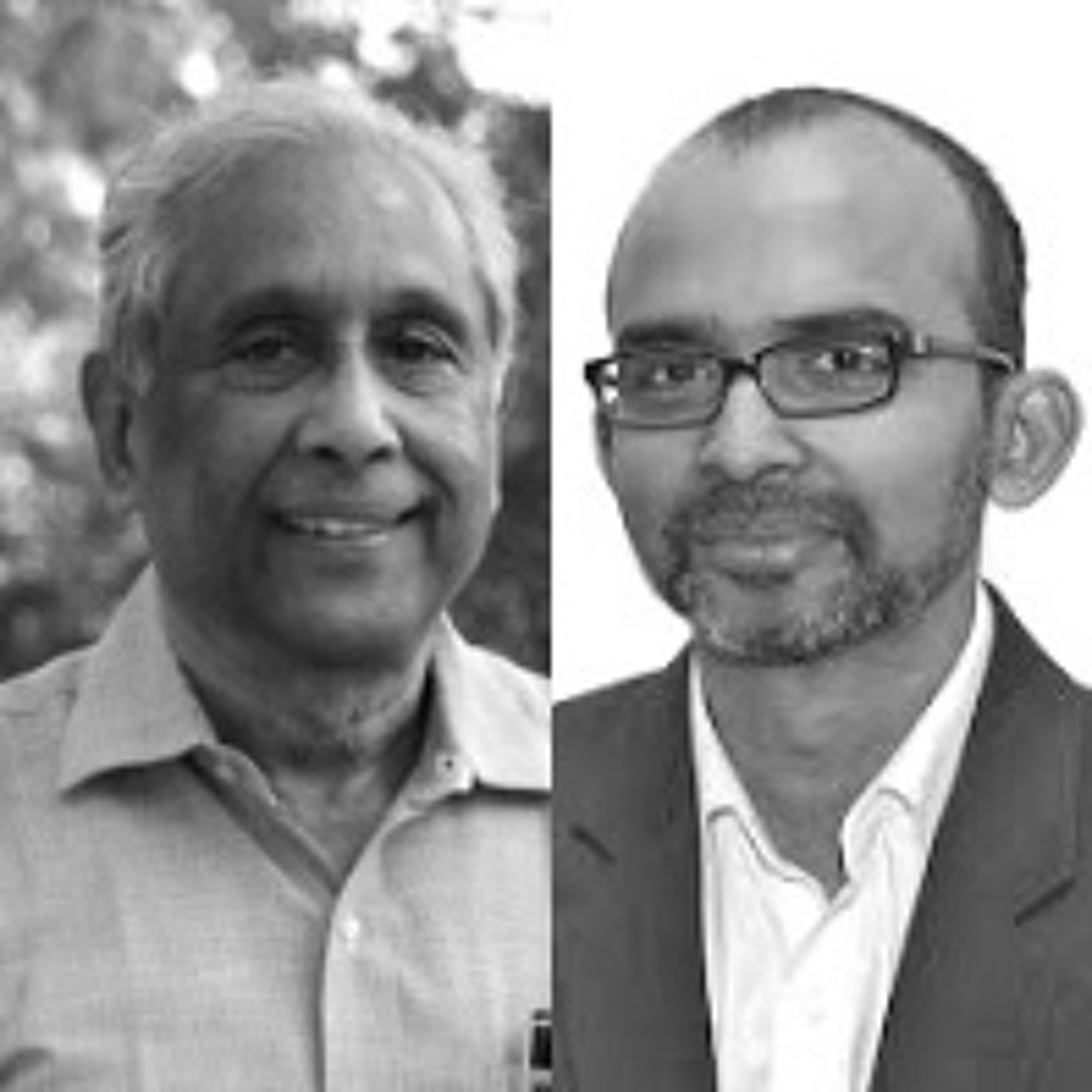
DataforDisasterRiskReductionUsing Big Data to Predict Natural DisastersIn this episode of Using Big Data to Predict Natural Disasters, C.K. Koshy talks to Dr. Bapon (SHM) Fakhruddin about theoretical framework for Disaster Management, methods adopted in the past for floods and droughts. They also discuss data challenges in the past and today, technology, data sharing and creating awareness among organizations.
C.K. Koshy retired from The Indian Administrative Service in 2005 in the rank of Additional Chief Secretary after a long and illustrious career spanning thirty-seven years in the higher echelons of the Government of Gujarat and the Govt. of India. He was the Secretary to the Govt...
2021-02-1524 min
DataforDisasterRiskReductionMassive cross domain data required for understanding Intelligent Urban SystemsIn this episode of Massive cross domain data required for understanding Intelligent Urban Systems, Dr. Franz W. Gatzweiler talks to Manvita Baradi about urbanization and its problems with increasing complexities, data has proved to be urban nervous system during the pandemic, along with the UHWB programme that has formulated principles in its Xiamen Call for Action in context of Intelligent Urban Systems, globally.
Dr. Franz W. Gatzweiler: Institute of Urban Environment, Chinese Academy of Sciences and Executive Director of the International Council for Science’s global programme on Urban Health and Wellbeing. Dr. Gatzweiler studied Agricultural Science at Bonn University an...
2021-01-2922 min
DataforDisasterRiskReductionImplementing integrated systems to scale up the Urban ResilienceIn this episode of Implementing Integrated Systems to Scale up the Urban Resilience, Stephen Passmore in conversation with Loveleen Garg, talks about the importance of having cross-domain integration for making cities infrastructure more resilient. The conversation is led with illustrations of enhanced data use and analytics and the common pathway of data science. The two speakers also talk about implications of data disclosure such as privacy, accuracy and interoperability. In the end, the episode focuses on a global scenario on common data standards which can help to scale up the sustainable infrastructure for cities.
Stephen Passmore, CEO, Resilience Brokers. Based...
2021-01-1521 min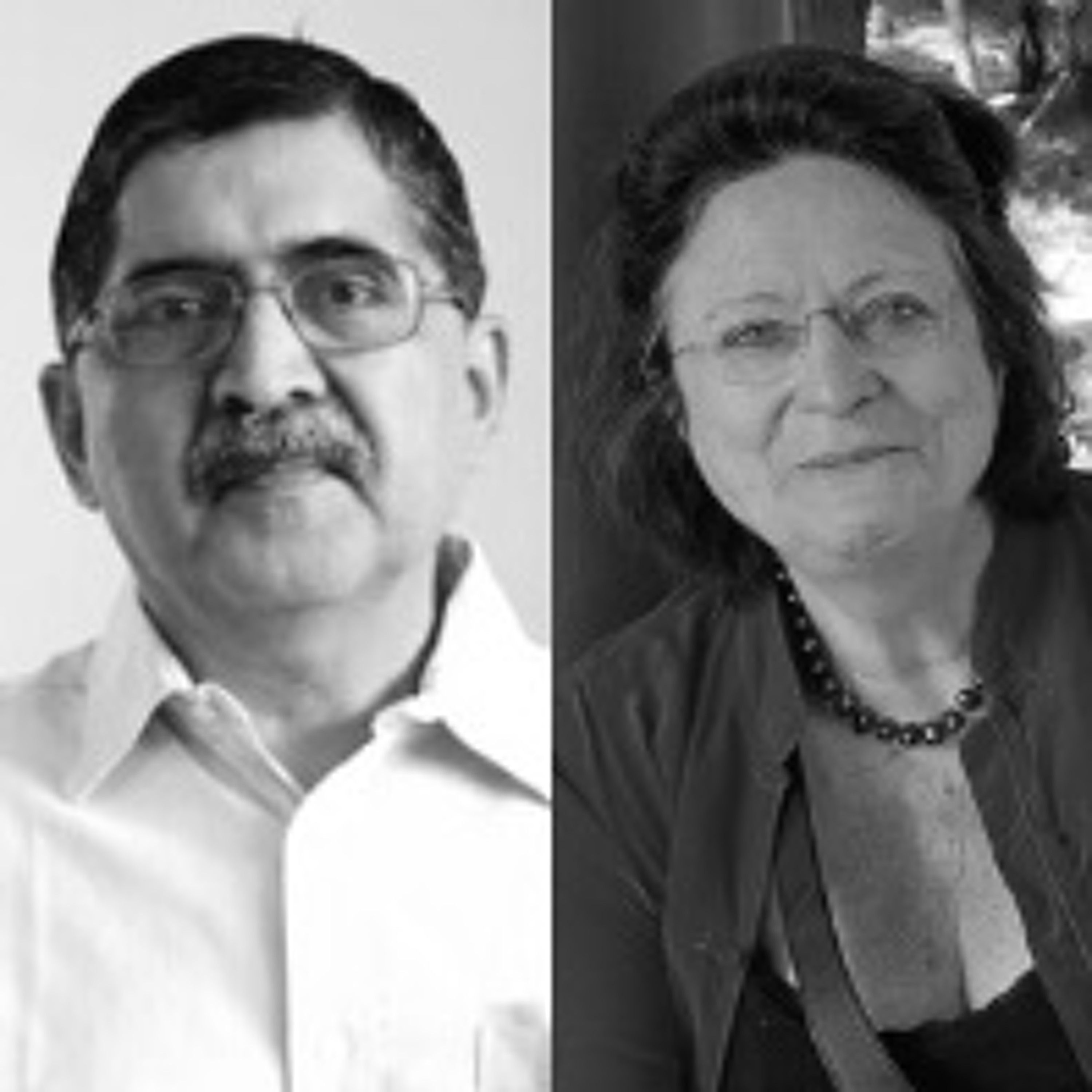
DataforDisasterRiskReductionRole of data for COVID response using Gujarat, India and London, UK as examplesIn this episode of the podcast series, Prof. Virginia Murray in a conversation with Dr. Dileep Mavalankar talks about the COVID-19 pandemic and the exposure to the virus across the world. She discusses the impact of COVID on city of London. Dr. Mavalankar shares India's fight with the virus and the results so far. They also talk about the importance of using data by governments to monitor health of the citizens and about the ground reality of COVID and its spread in India in spaces such as old age homes, subsequently leading to deaths. They also discuss in-depth about methods...
2020-12-1727 min
DataforDisasterRiskReductionTowards a Paradigm Shift for Open Data in Planning for Urban Sustainability and LivabilityIn the latest episode of the podcast series ‘Data for Resilient Cities,’ Darren Robinson starts a conversation on urban sustainability, resilience, and liveability with Avanish Pendharkar. He talks about the complexities of urban systems and their challenges. They also discuss how cities need to build a culture towards data collection, management, and publication to plan for sustainability, while also focussing on a policy framework to openly allow the use of publicly available data for planning and economic development. They discuss examples of data collection approaches in the UK and in India, like RERA where regulatory approaches have helped crowdsource data. They...
2020-12-1021 min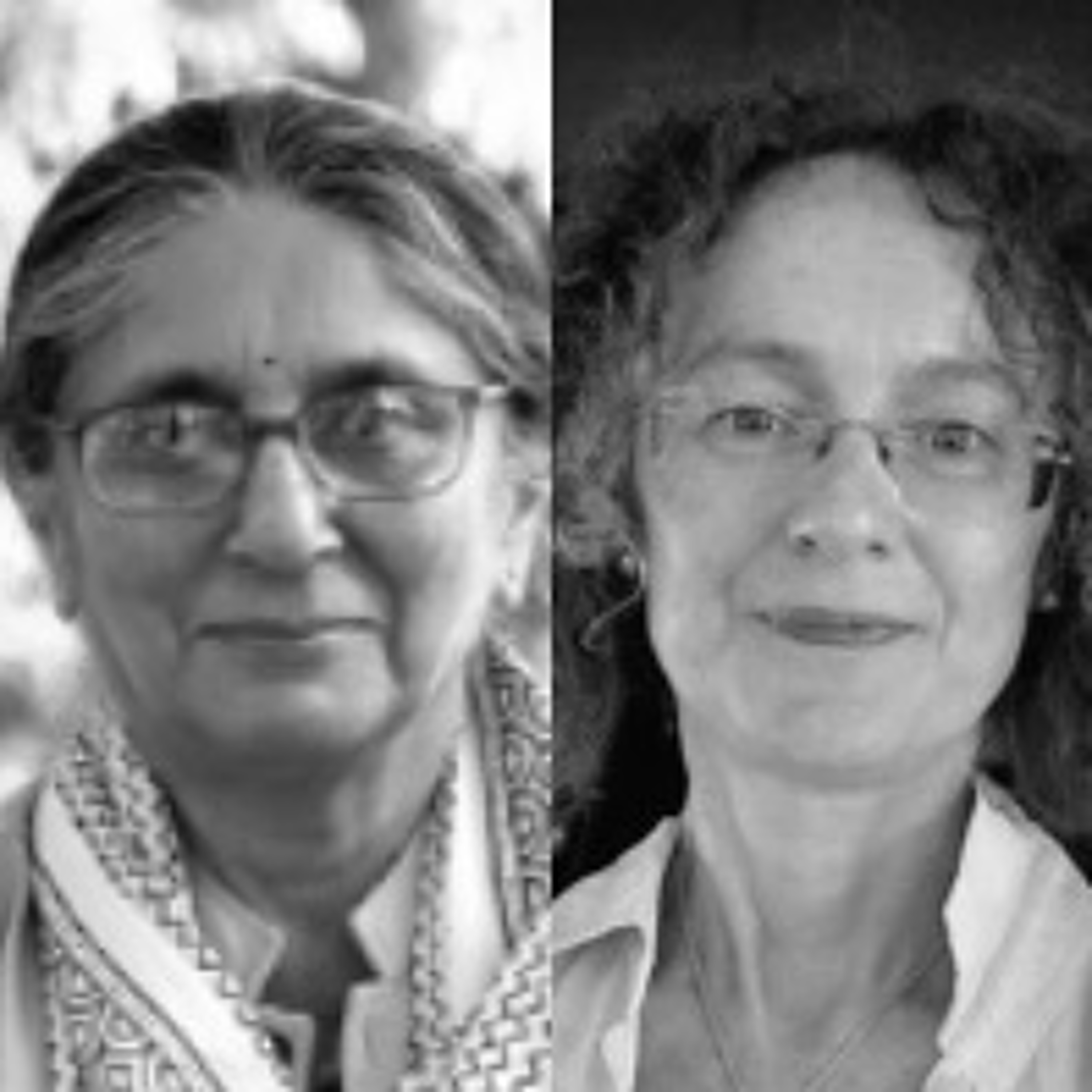
DataforDisasterRiskReductionMonitoring SDG Goal 6: Role of City and Country Systems along with CitizensIn this episode of Monitoring SDG Goal 6: Role of City and Country Systems along with Citizens, Dr. Mehta and Mondardini talk about monitoring SDG 6 and local and country systems for data collection for water and sanitation. They also discuss a case study and data collection methods, data sharing policy for SDG, other global case studies, and best practices of using citizen data for water and sanitation. The two speakers also talk about the role of the city and national government in monitoring WASH at scale, and the role of Niti Aayog in India. Citizens' science is also an important element...
2020-11-2737 min
DataforDisasterRiskReductionData-driven Policymaking for Resilient Built EnvironmentsIn this episode of Data-driven Policymaking for Resilient Built Environments, Dr. Yash Shukla in a conversation with Jieling Liu sharing their experiences about using qualitative and quantitative data for studying indoor and outdoor built environment which is particularly important in the current context where many cities around the world are experiencing climate change impacts such as heatwaves and natural calamities. These impacts have made the world realize the urgent need for bold and innovative climate mitigation strategies. They talk also about the data life cycle in a research project and the challenges of making the data public. In the end...
2020-11-1320 min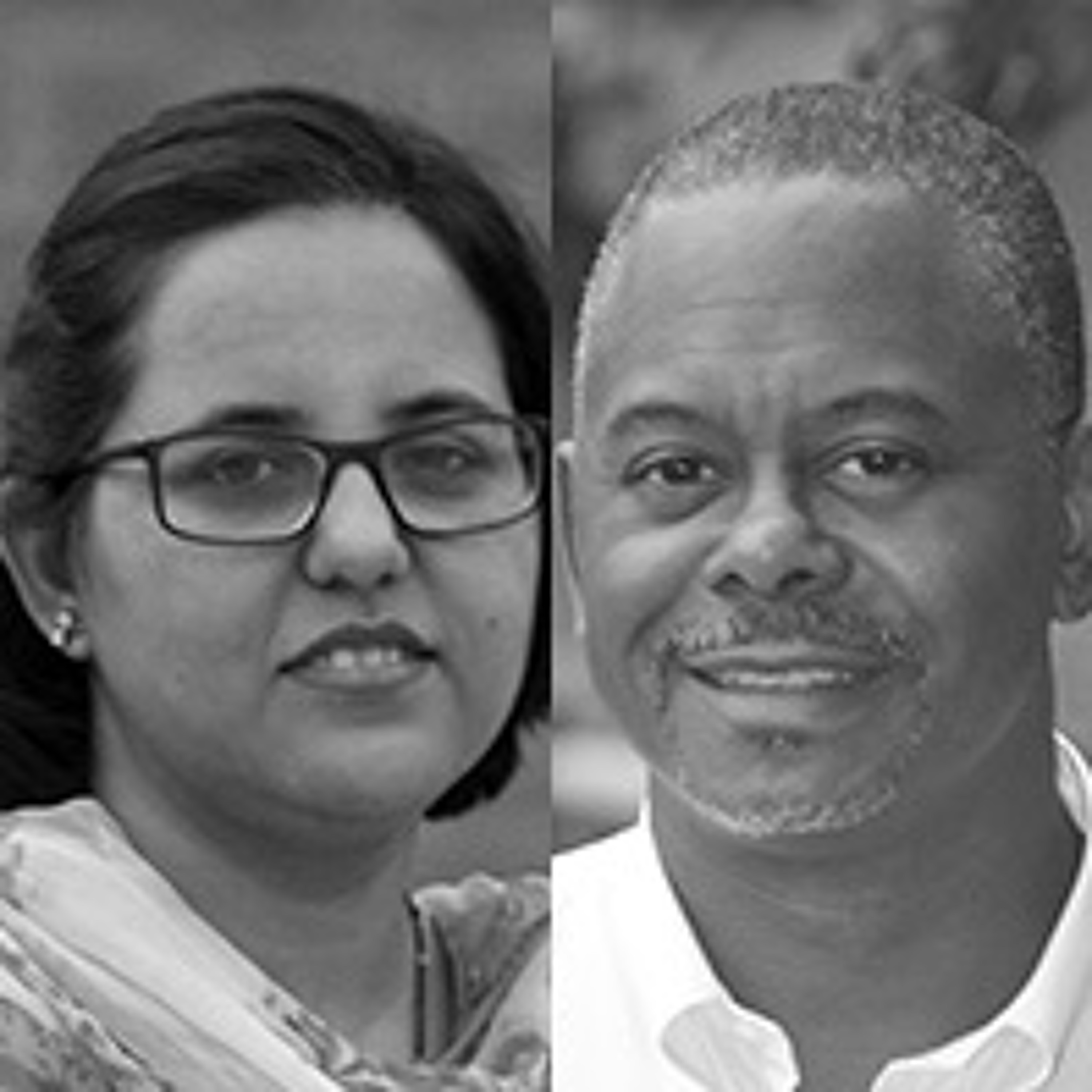
DataforDisasterRiskReductionRole of Data in Building Resilient Cities Focus on Urban FloodsIn the second episode of the podcast series titled ‘Data for Resilient Cities,’ Nitika Bhakuni starts a conversation with Stephen Diggs on climate change leading to extreme weather conditions and resulting in flooding especially in urban areas. The speakers discuss the impacts of these events on the cities and the various dimensions in understanding urban flooding.
Talking about planning future cities, the two put emphasis on how data can be used to build resilience in our cities by understanding the causes and impacts there off. They further explore the importance of data that is “fit-for-purpose” along with its timeless. Some of the i...
2020-10-2921 min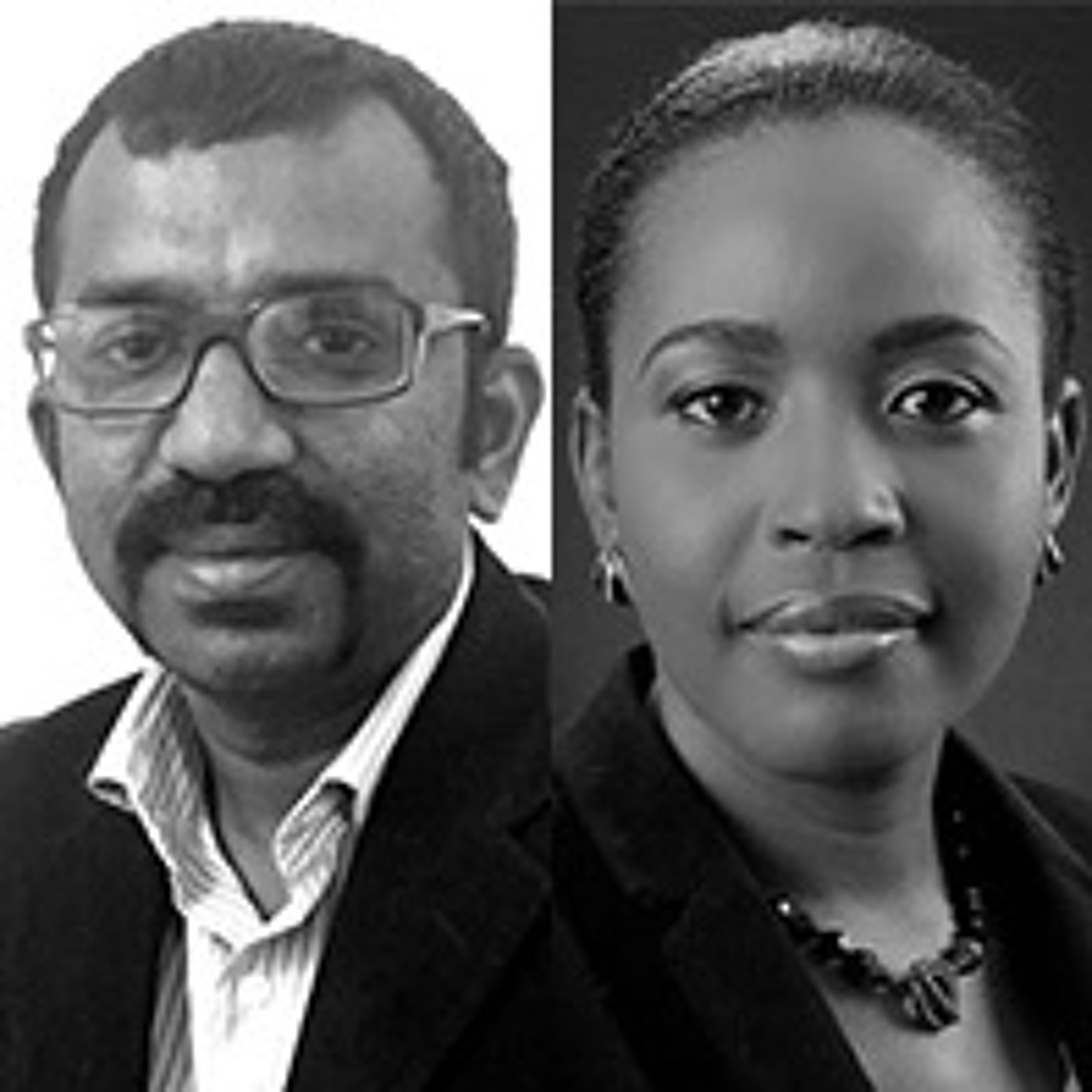
DataforDisasterRiskReductionData-driven Geospatial Solutions to Address Community Based ChallengesIn this episode of Data-driven geospatial solutions to address Community based challenges, Dr. Umamaheshwaran Rajasekar in conversation with Valrie Grant, explains the importance of Geospatial frameworks for data, its applications and challenges in community based solutions. Various community based initiatives have been discussed in particular with the example of the land registry management system, disaster management system and challenges of the last mile connectivity when it comes to data driven solutions as a whole. Further, national spatial data infrastructure initiatives have been highlighted globally with various organizations which have been involved in spreading awareness. In the end, the episode focuses...
2020-10-1623 min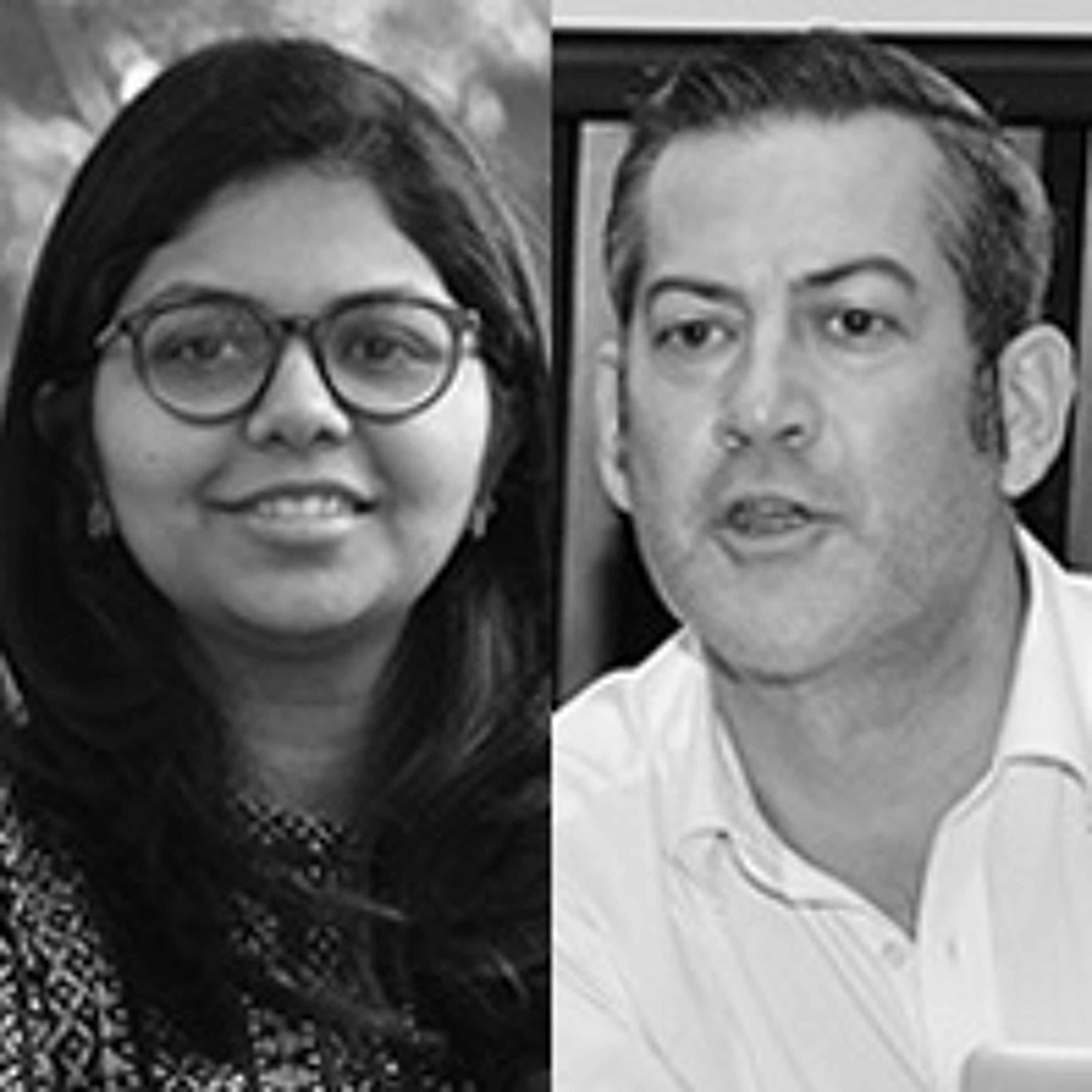
DataforDisasterRiskReductionIntroduction to the Podcast SeriesIn this introduction episode to the podcast series on Data for Resilient Cities, Shaily Gandhi in conversation with Simon Hodson, explains the idea of Data interoperability is an essential step to understanding complex systems and to create the knowledge needed to drive effective policy. The importance of data for making the city resilient. The structure of the podcast series is discussed which offers a rich collection of conversations, case studies and audio essays by eminent thinkers, practitioners, public decision-makers and policy advocates recall and reflect, discuss critical issues and point out the way forward. The episodes are of two categories...
2020-10-1310 min
Magic Read AlongLike a Parent at a Beauty PagentLamdaConf 2017Integrating PureScript and Halogen into JavaScript ApplicationsHow to Build a Blog in 10 Minutes with HyperLatticeCSS AnimationKeyframeTransitionMealy MachineMoore MachineProfunctorArrowized FRPSemiringRingAdjunctions in Everyday LifeCorecursion, Codata and Just a Little Combinatorial Game TheoryThe ZipperThe Algebra of Algebraic Data Types - Chris TaylorThe Algebra of Algebraic Data Types, Part 1The Algebra of Algebraic Data Types, Part 2The Algebra of Algebraic Data Types, Part 3The Two Dualities of Computation: Negative and Fractional TypesEuclidean SpaceReduxData types à la carteEncapsulation Considered HarmfulOpen/closed principle
2017-06-0131 min